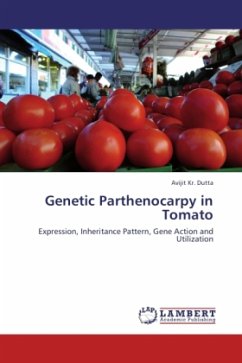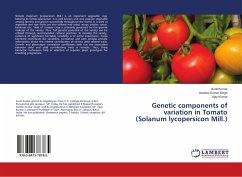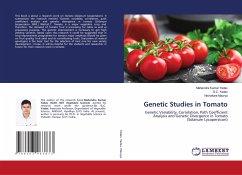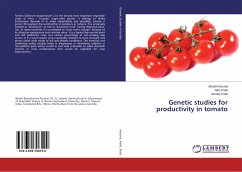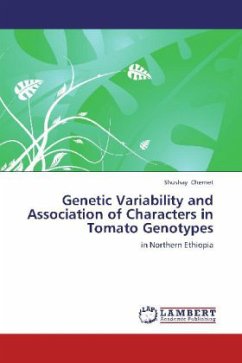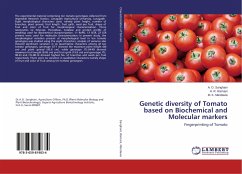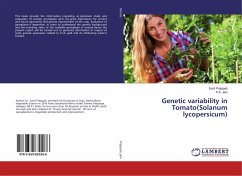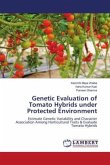Very low selfed and crossed seeds in Oregon Pride indicated that marked higher GA and Auxin concentration in the ovary leading to anticipated ovary growth and parthenocarpy might have resulted in impaired fertilization by either enhancing ovule abortion or reducing the pollen tube growth.Six genetic populations of three crosses suggested that the expression of parthenocarpy in the segregating population of all crosses with the involvement of the second gene designated as "ii", which influenced the pat-2 gene having major effect for the control of parthenocarpy. Inheritance of parthenocarpy (pat-2 pat-2 ii ii), stem pigmentation (aw+/aw), leaf character (c+/c) and their joint segregation could not detect genetic linkages between parthenocarpy and these two marker genes. The low seededness coupled with high quality hybrids may be developed by utilizing parthenocarpic tomato line in a hybridization programme. This book may help both research scholars and commercial growers to know ideal conditions for growing parthenocarpic tomatoes. As multiplication of parthenocarpic tomato is really very difficult thereby an attempt has been taken to develop tissue culture protocol for the purpose.

